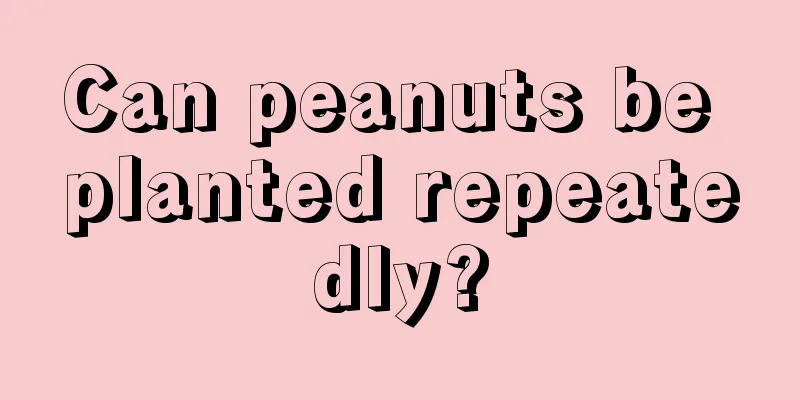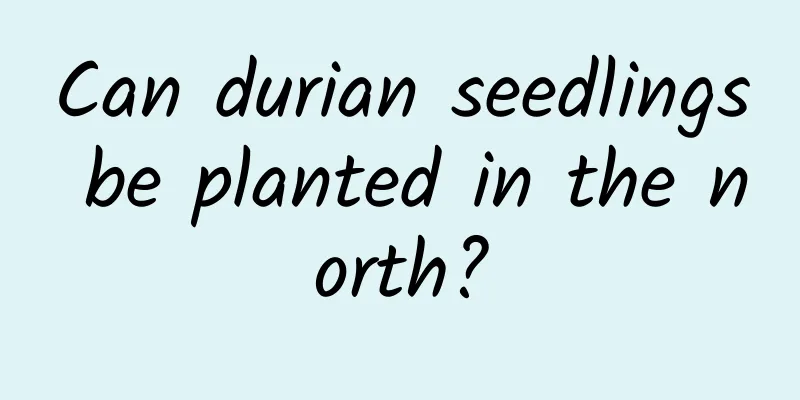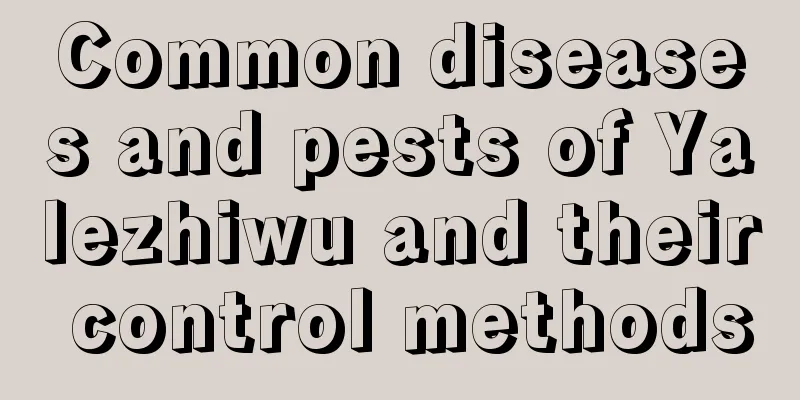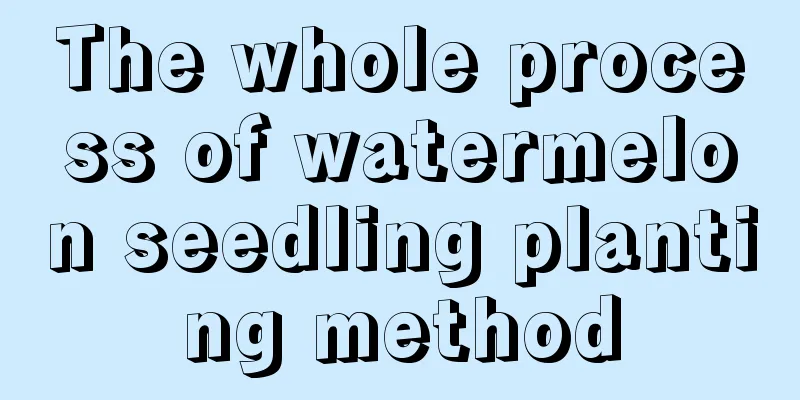Can peanuts be planted repeatedly?

|
Continuous cropping refers to planting the same crop on the same piece of land year after year. For some crops that are tolerant to continuous cropping, continuous cropping can effectively reduce the transfer of land and improve land utilization. So can peanuts be planted repeatedly? Let’s learn more about it below. Can peanuts be planted repeatedly? Like other leguminous plants, peanuts cannot tolerate repeated cropping. Continuous planting will not only deteriorate the quality of peanuts, but also reduce yields. According to statistics, the yield of peanuts will decrease by about 20% in one year of continuous planting, and by more than 30% in two years of continuous planting. The longer the continuous planting period, the greater the reduction in yield. How to solve the problem of repeated peanut cropping? 1. Variety selection For repeated cropping, in addition to choosing appropriate tillage and management measures, choosing disease-resistant varieties is actually a good choice, which can fundamentally reduce the possibility of repeated cropping. 2. Rotational planting Generally speaking, peanuts need to be rotated with other crops every 1-2 years. It is recommended to rotate with other field grass crops such as wheat , rice, corn, sorghum , millet, etc. for better results. 3. Deeply plow the soil After harvesting peanuts, the soil should be plowed deep to a depth of 50 centimeters. Turning the soil not only allows it to be sterilized and disinfected through sunlight, but also loosens the soil, increases soil temperature and improves soil moisture, which helps reduce the impact of repeated peanut planting. 4. Seed dressing with chemicals The most obvious harm of continuous peanut cropping is the accumulation of various pathogens and pests in the farmland soil. Therefore, in order to solve the problem of continuous planting of peanuts, it is essential to mix the seeds with pesticides. The general seed dressing formula for disease control is: thiophanate-methyl + fludioxonil + metalaxyl-M; the seed dressing formula for insect pest control is: imidacloprid + fludioxonil + thiophanate-methyl. 5. Fertilization adjustment For plots of land where bacterial wilt and stem rot are seriously affected by continuous cropping year after year, it is necessary to apply microbial agents or farmyard manure to improve the soil microbial environment and quantity and restore the soil's own cleaning ability. 6. Mulching Mulching with plastic film is an important measure to improve the continuous cropping of peanuts, which can increase the yield by more than 40% compared with direct open field planting. Moreover, continuous use of plastic mulch to cover peanut planting will not cause serious reduction in peanut production. In general, peanuts are not suitable for continuous planting, which brings many negative effects. If we do not pay attention to the problem of continuous planting of peanuts and master the relevant solutions, it will be difficult to improve the yield and quality of peanuts.
|
<<: Maintenance measures for the pine tree and soil requirements
>>: How to get a high survival rate of cuttings of the single tree, other propagation methods
Recommend
Wax apple planting technology and management methods
Wax apple, also known as heavenly peach, water wa...
How to prune tomatoes: Pruning time and technique
Tomato pruning time When pruning tomatoes, be sur...
When is the season when apples ripen?
1. Maturity Time Apples mostly ripen in autumn. T...
Hibiscus cutting method and time
1. Time The suitable time for cuttings is spring,...
Jasmine cutting method and time
Jasmine is loved by people for its fragrant aroma...
What is the best month to plant Bermuda grass seeds?
When to plant Bermuda grass seeds The seeds of Be...
Is the money tree poisonous?
Money tree is said to be poisonous It has been re...
Where is Niu Dali suitable for planting?
Niu Dali Planting Place Rhizoma Dioscoreae is a d...
What to do if the peach tree grows too tall
What does it look like when a peach tree grows to...
Breeding methods and precautions of Yunjin Rhododendron
Growth habit Before talking about how to raise th...
The efficacy and function of Belamcanda chinensis
1. Relieve cough and moisten lungs Belamcanda chi...
Soil skills for growing orchids, how to grow orchids in peat soil
1. Soil skills for orchids 1. Size stratification...
Celery planting time and method cultivation and management technology
Celery planting time The best time to plant celer...
Differences between Populus euphratica and Pinus sylvestris
1. Differences in the trunk The trunk of Populus ...
How long does it take for peach leaves to germinate?
How long does it take for peach leaves to germina...









